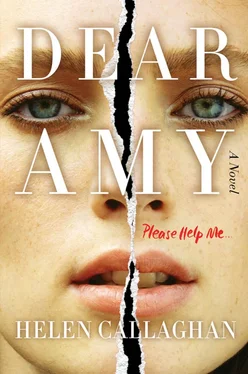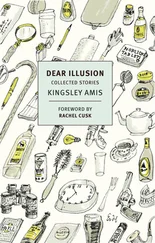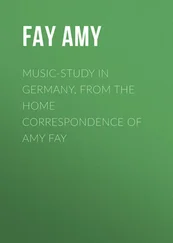‘I don’t know what you’re panicking about, Margot,’ he said. ‘Who’s going to tell your employers about this? You haven’t done anything wrong. You passed the background check, so it’s not like you’ll fail it now.’
I took a deep breath. I wanted to shake him.
‘I’m panicking because information always wants to escape.’ I sighed. ‘That’s the way of the world. My past, Bethan Avery’s fate – it all wants to escape. That’s why this is happening, after all.’
His reply was a sympathetic half-smile. He knew it was true.
‘I just… if that cow… sorry,’ I say, stopping myself. ‘I realize she’s a friend of yours.’
‘She is a friend of mine,’ he said mildly. ‘But you’re right, she was a bit of a cow today.’
‘If she or anyone else starts poking around in my life asking questions…’ I closed my eyes, let my head sink back. ‘I just need to publish this damned appeal, and Bethan Avery will either come forward or we’ll never hear from her again. Right?’
‘Right.’ He sat back in the driver’s seat, regarding me. ‘Unless you don’t want to do this any more.’
‘What do you mean? You think that I should just drop it?’
‘You’ve done your best, I’m not sure anyone would blame you.’
‘No.’ I took a deep breath, steadied myself. ‘I would blame me.’ I met his gaze. ‘Katie’s still missing, isn’t she? I would blame me.’
He didn’t reply for a long moment.
‘Come on,’ he said, turning the key in the engine. ‘You look like a woman that could use a drink.’
I cannot remember how I came across the nuns. I only know that I fell into their eccentric orbit, somehow. They used to send a plain-clothes nun or one of the lay volunteers to hand out cards at coach stations, in an attempt to rescue the young flotsam and jetsam of the provinces as they washed up in London, and I must have taken one.
But I remember my little bunk in the upper dorm of St Felicity’s, with its thin but rigorously boiled sheets, and the wailing sirens and roars of night buses that came in through the sliver of open window.
St Felicity’s, or Flicks as it was more commonly known, was run by the Sisters of St Mary of Good Counsel. In those days they wore habits – pale grey knee-length dresses, with short white wimples and veils, ugly taupe stockings (I asked about this and was told black was considered too racy) and sturdy brown shoes. They smelled of clean sweat and plain soap. Even after years of living with them, they never lost that aura of consecrated otherness, which I could admire but never had any desire to emulate.
They were managed by a woman called Mother Cecilia, who was from a little town in Fife called Lochgelly, and spoke with a soft accent. She seemed ancient to me, and was grey and ivory and paper-thin, and rustled wherever she walked – she made me think of spun lace, or fabric so worn that the sun shone through it. That said, it would be wrong to imply that she was in any way infirm or weak; she ruled St Felicity’s, and the nuns, with a kind of strident ferocity and energy, like a female Gandalf.
There were two parts to St Felicity’s – one was a pair of large, rambling Victorian semis that had been knocked through and into which homeless women were buzzed via the triple-locked door on the left side of the building. The front door on the other side, peeling and weather-stained, was never used and the bolt had rusted shut. (‘That’s the Golden Gate, child,’ Mother Cecilia replied one day to my puzzled question. ‘Like the one in Jerusalem. It won’t open until the Messiah knocks.’)
The second part of their portfolio was a modern low-rise with six flats in Surrey Quays, the address of which was kept secret. When I was with the nuns for a while, I saw more of it. A high wall surrounded it, pierced by a single electronic gate, the top of which was fleeced with barbed wire, like a command post in a hidden war. It was a refuge for victims of domestic violence, particularly women with children, and nuns with business there changed into street clothes before setting off, lest their distinctive habits lead danger to the door. The world is a perilous place for women – that is the other thing the nuns taught me.
I remember going there on an errand with Mother Cecilia once, who appeared like a stranger to me in a serge skirt and lumpen black jacket, her short grey hair covered by a rose-printed scarf, as though keeping her head uncovered, even for a short time, might fry her delicate hothouse brain.
And it was a delicate hothouse brain. She had, at some point in her life, been extensively educated, and knew Greek, Latin and French.
To me, then, her powers over history and language seemed nothing less than alchemical wizardry, the sort of thing that centuries ago would have seen her burned. She would read things aloud in Latin and Greek, if asked, and I would listen, amazed, soaking in its magic, the music of the names of lost heroes and villains and aeons, buried under tide and dust.
I don’t remember how I stumbled on this hidden facet to her in the midst of a loud, busy, chaotic homeless shelter. I just know that I did, and somehow, for some reason, she took me under her wing. It turns out it’s true, you never forget a good teacher. I devoured the books she lent me – simple elementary grammars and course books designed for children at first, before moving on to others, many of them surprising possessions for a nun – the poetry of Catullus, for example.
She’s the reason I became a teacher myself. If I could pass on her gift to me to just one person, I would consider my life’s debts paid.
And I believe I have run up enormous debts in my time.
‘The secret key to the history of the world,’ she said, ‘is to know its mother tongue. That way, my dear, you’ll always get to the living heart of a thing – the voices out of the past will speak directly to your soul. Your life and thoughts should never require a translator.’
I thought about this all the way home as Martin drove.
And the more I thought about those lost years, and the people I met in the warren of that shelter, and in the fortified flats of Surrey Quays – those places where the world’s female driftwood washed up – the more I wondered whether I had, perhaps, met Bethan Avery before.

‘Who can tell me who Nemesis is?’
I was back in my Classics class on Monday morning – this was the Year Tens who were studying, for their sins, the Oresteian trilogy by Aeschylus. I was priming them, ahead of time, with a little ancient Greek cosmology before they started reading. I’d already done a whistle-stop tour of the Olympian gods, and was about to start on the more exotic parts of the pantheon.
I really liked my Year Ten class, who by a happy accident were sprinkled with cheerful, interested kids and the occasional genuine wit.
I liked them more than usual this morning, because Saturday’s adventures in London had demonstrated that I was nearer than usual to losing them. I hadn’t slept a wink all weekend.
Hands went up.
‘Nemesis is your worst enemy, Miss,’ supplied Oliver Monto, a tall youth with a massive dark afro, once I nodded at him. ‘The thing that gets you, like, because of your own flaws.’
I nodded and then shrugged. ‘Yes and no.’ I tried not to think about how apposite this summary was to my own situation. ‘I mean, you’re right, but that’s only what “having a nemesis” has come to mean nowadays. But it wasn’t always that way. The word itself comes from ancient Greece, and is the name of a goddess. Does anyone know what she was the goddess of?’
Читать дальше













